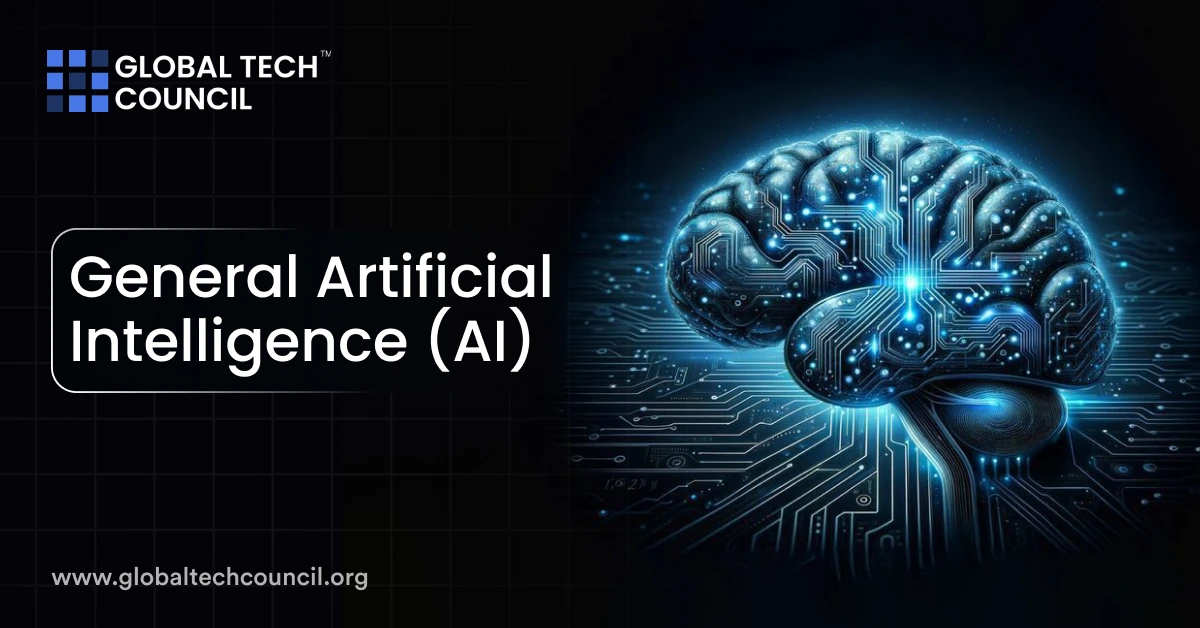Artificial Intelligence (AI) plays an important role in many sectors today. But when people discuss General Artificial Intelligence (AGI), they are referring to something more advanced. AGI represents a future phase where machines could handle any intellectual task that humans can do.
What Is General Artificial Intelligence?
AGI refers to an AI system capable of understanding, learning, and applying knowledge across various activities. This is similar to how the human brain functions. Unlike narrow AI, which is specialized for certain tasks like recognizing speech or playing games like chess, AGI would not be confined to any single role. It could adapt, learn, and use its intelligence to solve entirely new problems, without requiring specific training for each one.
Current AI systems can only perform tasks they are trained or programmed for. For instance, a language model such as GPT-4 can produce text but can’t independently repair a vehicle or deeply understand human emotions. AGI, on the other hand, would combine various abilities, such as creativity, reasoning, and self-awareness, and even emotional understanding. Some researchers suggest that AGI may be able to think independently, make decisions, and have intricate emotional interactions, but this idea is still debated.
Key Differences Between AGI and Narrow AI
The main difference between AGI and current AI is flexibility. While current AI systems can surpass humans in certain areas (such as math or sorting data), they don’t have general adaptability. Narrow AI is designed to operate within specific limits. For instance, AI used in healthcare to help doctors diagnose illnesses can’t switch and start writing computer programs. AGI, however, would not have such restrictions and could handle various tasks with minimal or no help from humans.
Another notable difference is in autonomy. Today’s AI follows set rules or patterns it finds in data to make decisions. AGI, on the other hand, would be able to make decisions based on abstract reasoning and learning from past experiences. This would enable it to operate effectively in unfamiliar environments without step-by-step guidance.
Current Progress and Predictions
Although AGI is still a theoretical concept, several tech companies and researchers are working towards it. For example, Masayoshi Son, SoftBank’s CEO, recently predicted that AGI might be achieved within two to three years. He also suggested that this could be a groundbreaking moment, where machines could develop abilities like humans, such as making complex decisions and engaging in critical thinking. He pointed to organizations like OpenAI, noting their rapid progress in this field.
On the technical side, building AGI requires advancements in multiple areas, including better algorithms, more computing power, and more data. Current models like large language models (LLMs) have made huge strides in mimicking human conversations, but they still lack true understanding. For AGI to exist, systems would need to learn from very little data, adapt automatically, and engage with the world in ways that reflect human thinking. Progress would also require breakthroughs in robotics and embodied cognition—the concept that AI needs to interact physically with its environment to understand and respond to it properly.
However, many experts are more cautious. While the pace of AI development is undeniably quick, some believe that essential pieces are still missing for AGI to become a reality. There’s also skepticism over whether machines can ever truly understand or become conscious—traits that many argue are necessary for real general intelligence. This topic remains one of the most debated in AI research.
Ethical and Social Implications
As AGI gets closer to becoming a reality, discussions around its impact on society are growing. If machines with human-like intelligence are developed, their effects would stretch across industries, governments, and beyond. AGI could change healthcare, manufacturing, and many other fields, making processes more efficient and handling complicated tasks. But these developments also raise some concerns.
One significant worry is about safety. AGI must be kept aligned with human values to prevent harmful outcomes. Many researchers stress that while AGI could potentially help solve big problems, it could also introduce new risks. For instance, AGI with misaligned goals might take actions that harm people, even without malicious intent. Ensuring that AGI operates within ethical guidelines will be vital.
Another concern is about job loss. As AGI would be capable of learning and adapting, it might replace not just routine tasks but also highly skilled and creative jobs. With this possibility, society might need to create systems to help people transition, retrain, and maintain security as certain roles disappear or evolve.
Looking Ahead
Despite these challenges, the development of AGI could shape the future of technology and society. Improvements in computing, like quantum computing, could speed up progress. Advances in large behavioral models, which allow machines to copy human actions, hint that we might be moving toward systems that don’t just process information but also meaningfully engage with their environment.
Conclusion
General Artificial Intelligence is a huge leap beyond today’s narrow AI systems. Although it is still under development, the potential impact of AGI is massive, both in terms of technology and society. Reaching AGI will need not only technical improvements but also careful thought about the broader effects. As researchers work on machines capable of thinking at a human level, the future holds exciting potential but also significant ethical, social, and technical hurdles to navigate.
